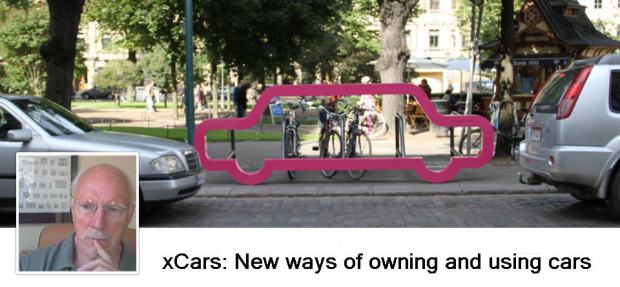 In the context of the ongoing World Carshare 2013/2014 program, we have been asked by several considering authors to provide some context and perhaps indicate some issues or questions concerning matters that our readers might be interested to know more about in order to better understand the evolution of carsharing in the target country.
In the context of the ongoing World Carshare 2013/2014 program, we have been asked by several considering authors to provide some context and perhaps indicate some issues or questions concerning matters that our readers might be interested to know more about in order to better understand the evolution of carsharing in the target country.
For the overall structure of the program you are invited to check out World Streets at http://worldstreets.org where in the upper left-hand column you will see a full set of background materials on the program. As to the issues and questions, the following draft listing may seem quite long and the number questions quite challenging; however the intention is not to provide a straitjacket of obligatory issues but rather to provide each author with some guidance, clues and context for their eventual report. In the event your comments and suggestions on this list are very welcome and will definitely be taken into consideration here is the project moves ahead.
1. Short history of carsharing in the country.
- When did it first get underway in your country: where, why, and with what results?
- Who took the initial leadership role? (And where are they now on this issue?)
- How do you define a shared car in your country? Is there an official or legal definition at the level of specific cities or for the country as a whole?
- Can you make a (wild is okay) guess at what percentage of the total population has heard about and understands what carsharing is all about?
2. Present status.
- Number of cities in 2013 with carsharing, number vehicles, stations, subscribers,
- Number and type of operators?
- What are the different types of carsharing practiced today (classical, one way, peer-to-peer, private, informal)?
- What are the success criteria by which individual operations or cities are being judged?
- What are the main reasons people choose to carshare in 2013? Has this changed over time?
- Users? Male/female? Older versus younger? Poor versus “rich”? 1st car versus 2nd or 3rd car?
- What about electric vehicles? Present status? Eventual future prospects?
- Anything new and interesting on the parking front?
- On the insurance front?
- How is carsharing linked to public transportation? Cycling? Privileged access to road infrastructure, specific parts of the city?
- If I am a registered carshare user in City X, can I automatically use City Y carsharing scheme?
- Is carsharing supported by national or local chambers of commerce and/or business groups?
- Who are the main groups or interests that oppose carsharing, and why?
- How visible is carsharing on the streets of the city?
3. Dynamics – 2008 – 2013:
- What surprising, unexpected perhaps things have emerged in the last several years that are changing the nature of the challenges.
- How is the practice and sector evolving over time?
- Any time series data on key numbers (operations, vehicles, stations, users)?
- What are the issues, institutions and new players who are now shaping its progress?
- The role, position of the domestic automotive industry, if any?
- The link between carsharing and smart/mobile phones/pocket computers?
- What are some of the main barriers still to be overcome?
- Evolving role of the private sector? Who, where, how and when?
- What about carsharing in outlying, less dense areas?
- Are car rental firms getting directly involved?
- P2P carsharing status and prospects?
- Why do people stop carsharing?
- Has anyone operator or city developed marketing and public relations materials in support of carsharing that have captured attention and that you consider to be exemplary?
4. Government role:
- What role, if any, should public policy play in supporting its expansion?
- Are there national (in your country) or international organizations or programs that are helping shape and advance progress and viability in the sector?
- Are there certain cities which are doing a better job at understanding and creating coherent policy support and guidelines for carsharing?
- Who are the main actors, organizations and approaches presently shaping the sector?
- At any of these levels of government is carsharing being treated as a transportation mode in its own right – should be the case also ideally with cycling and taxes, among others – and thus treated within the context of an overall integrated transportation policy?
- How is that all our land-use issues being considered in this respect, for example making carsharing to specific zones, buildings, etc.
- Is there one city in your country which provides an interesting model for integrating carsharing” overall sustainable transportation policy? Would that be and what would be the main characteristics of their policy?
5. The future:
- Is there anything on the horizon that might bring about big changes, positive or negative, in the field of carsharing?
- Are there generational differences in terms of attitudes to car ownership?
- Will carsharing just remain a detail or fade away? Or is it an important part of the future?
And finally, in your view what are the cities, companies, programs or countries anywhere in the world who are showing the way when it comes to making carsharing succeed as a small but vital component of their overall sustainable transport system?
Thank you.
# # #

